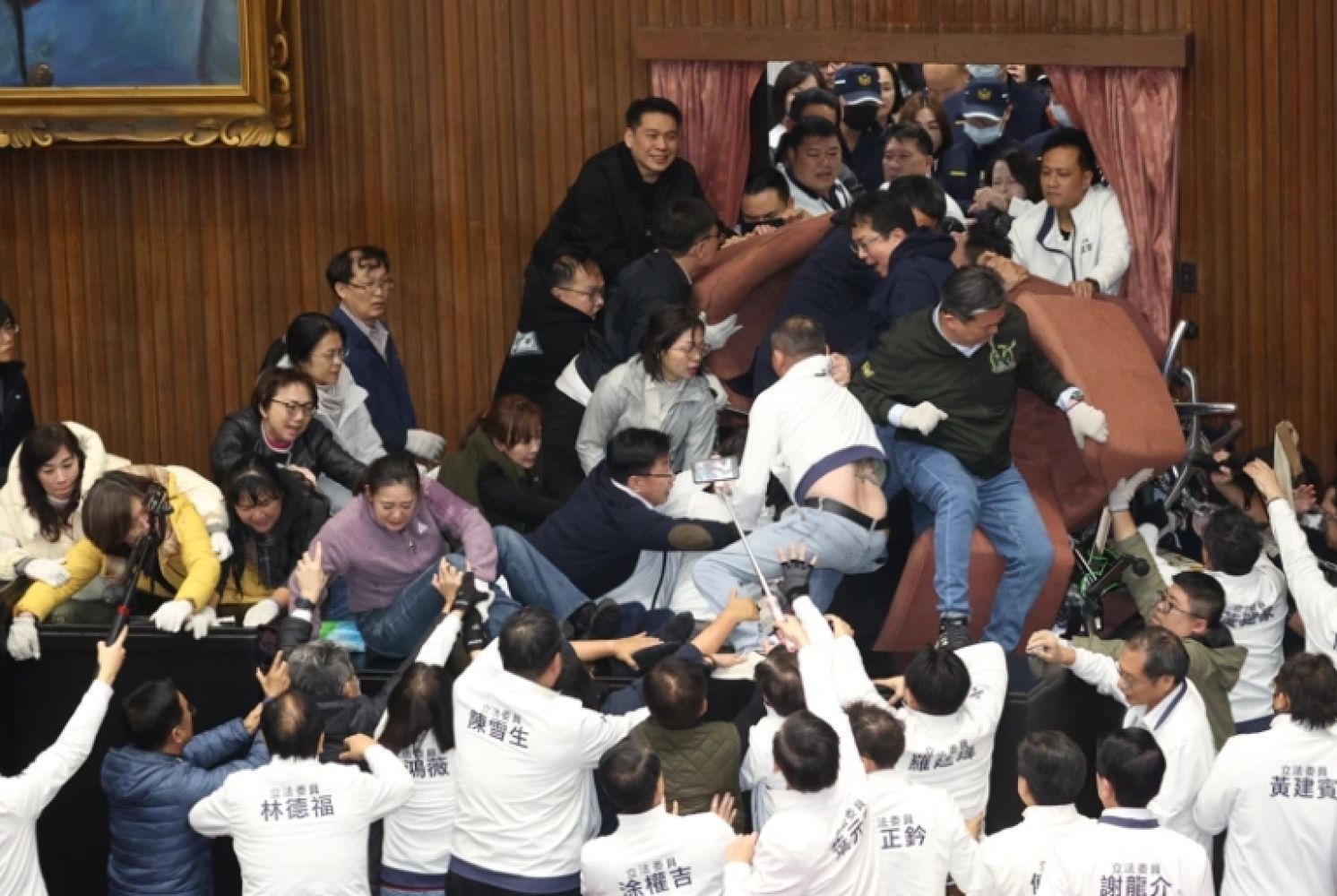
DPP Blocks Legislation and Legislative Yuan Chamber, Mirroring South Korean National Assembly
United Daily News Commentary, December 20, 2024
On December 3, South Korean President Yoon Suk-yeol unexpectedly declared martial law, deploying troops and police to block the National Assembly. This move, meant to safeguard national security against from North Korea and domestic pro-North Korean elements, sought to prevent lawmakers from carrying out their duties. Taiwan's ruling Democratic Progressive Party (DPP), on the other hand, has mirrored this by locking down its legislature to block legislation backed by the opposition. The development raises concerns that under President Lai Ching-te, Taiwan’s democracy may be slowly unraveling.
South Korea and Taiwan share similar democratic trajectories, having both faced significant external threats that led to authoritarian rule, followed by democratic reforms. Currently, both countries feature strong opposition forces with considerable influence over the administration in power. In response, the Lai administration, like President Yoon’s, has sought to suppress the opposition, branding them as threats to national security.
The DPP's response to the South Korean crisis further highlights the similarities. After President Yoon’s declaration of martial law, the DPP posted on social media, comparing the opposition’s proposals to cut defense budgets and alter fiscal policies to a "global dark force" undermining Taiwan. While President Lai has not yet gone so far as to declare martial law, the government has increasingly used tactics like mobilizing protests and obstructing legislative reform debates, showing signs of authoritarian inclinations.
Moreover, regarding electoral law reforms, DPP Secretary-General Lin You-chang has urged supporters to join external protests, treating them as a way to fight the opposition, effectively turning protests into political tools. Such actions from a ruling party are unprecedented in a democracy.
Ironically, President Lai has previously called for full respect for democratic processes in legislative debates, advocating for more time for discussion and negotiation. Yet, when faced with opposition-backed proposals, the DPP has blocked debates or used filibusters to paralyze proceedings, even resorting to locking the legislature. Is this the democracy that President Lai champions?
In a democracy like Taiwan, there are mechanisms to replace lawmakers who go against public will, but the DPP’s actions, including undermining the legislature, are far beyond what’s acceptable in a democracy. As a former opposition lawmaker, President Lai should understand the importance of checks and balances for national development and refrain from using undemocratic methods to suppress opposition. If he continues down this path, then President Lai may become responsible for undermining Taiwan’s democracy.